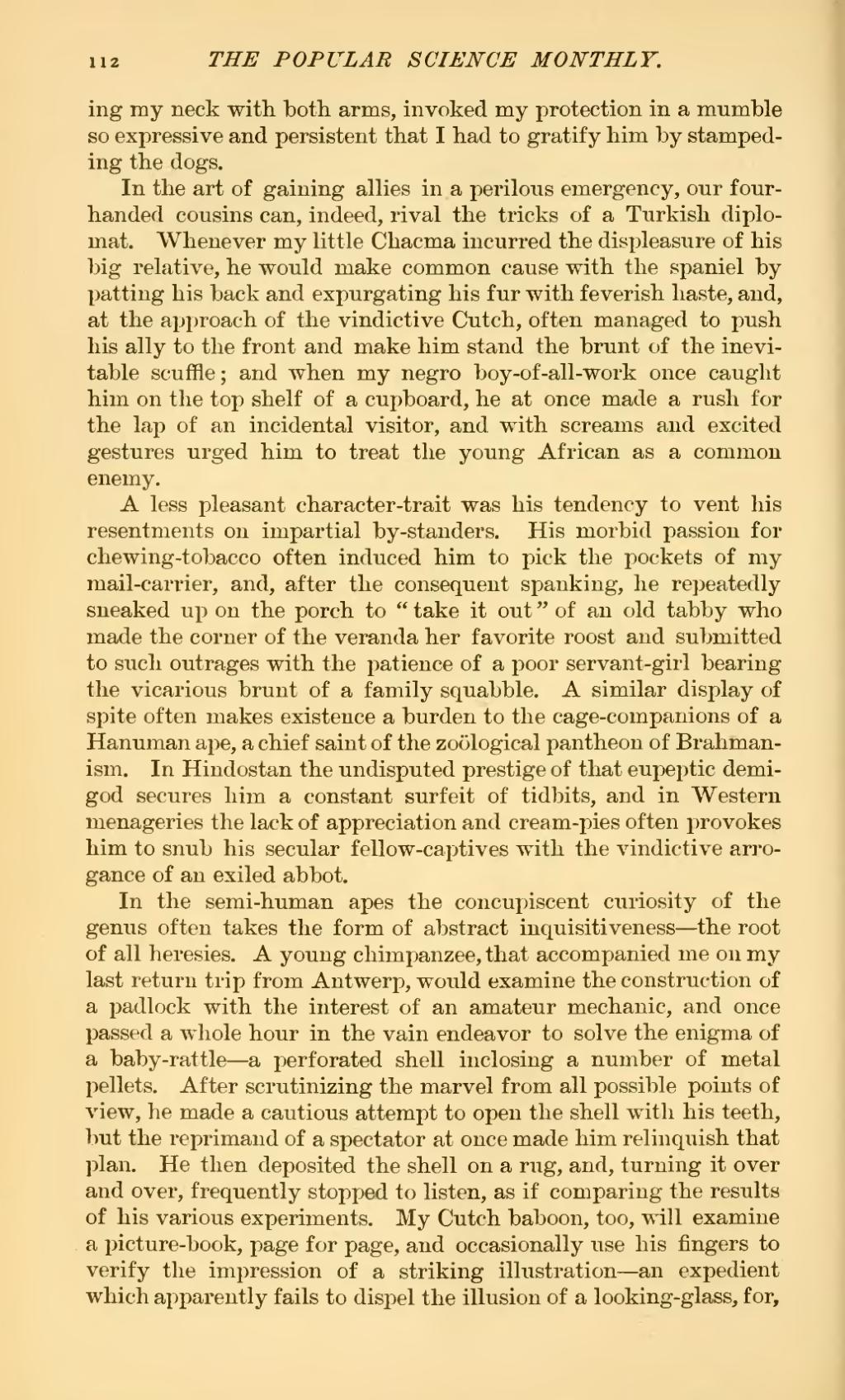ing my neck with both, arms, invoked my protection in a mumble so expressive and persistent that I had to gratify him by stampeding the dogs.
In the art of gaining allies in a perilous emergency, our fourhanded cousins can, indeed, rival the tricks of a Turkish diplomat. Whenever my little Chacma incurred the displeasure of his big relative, he would make common cause with the spaniel by patting his back and expurgating his fur with feverish haste, and, at the approach of the vindictive Cutch, often managed to push his ally to the front and make him stand the brunt of the inevitable scuffle; and when my negro boy-of-all-work once caught him on the top shelf of a cupboard, he at once made a rush for the lap of an incidental visitor, and with screams and excited gestures urged him to treat the young African as a common enemy.
A less pleasant character-trait was his tendency to vent his resentments on impartial by-standers. His morbid passion for chewing-tobacco often induced him to pick the pockets of my mail-carrier, and, after the consequent spanking, he repeatedly sneaked up on the porch to "take it out" of an old tabby who made the corner of the veranda her favorite roost and submitted to such outrages with the patience of a poor servant-girl bearing the vicarious brunt of a family squabble. A similar display of spite often makes existence a burden to the cage-companions of a Hanuman ape, a chief saint of the zoölogical pantheon of Brahmanism. In Hindostan the undisputed prestige of that eupeptic demi-god secures him a constant surfeit of tidbits, and in Western menageries the lack of appreciation and cream-pies often provokes him to snub his secular fellow-captives with the vindictive arrogance of an exiled abbot.
In the semi-human apes the concupiscent curiosity of the genus often takes the form of abstract inquisitiveness—the root of all heresies. A young chimpanzee, that accompanied me on my last return trip from Antwerp, would examine the construction of a padlock with the interest of an amateur mechanic, and once passed a whole hour in the vain endeavor to solve the enigma of a baby-rattle—a perforated shell inclosing a number of metal pellets. After scrutinizing the marvel from all possible points of view, he made a cautious attempt to open the shell with his teeth, but the reprimand of a spectator at once made him relinquish that plan. He then deposited the shell on a rug, and, turning it over and over, frequently stopped to listen, as if comparing the results of his various experiments. My Cutch baboon, too, will examine a picture-book, page for page, and occasionally use his fingers to verify the impression of a striking illustration—an expedient which apparently fails to dispel the illusion of a looking-glass, for,

